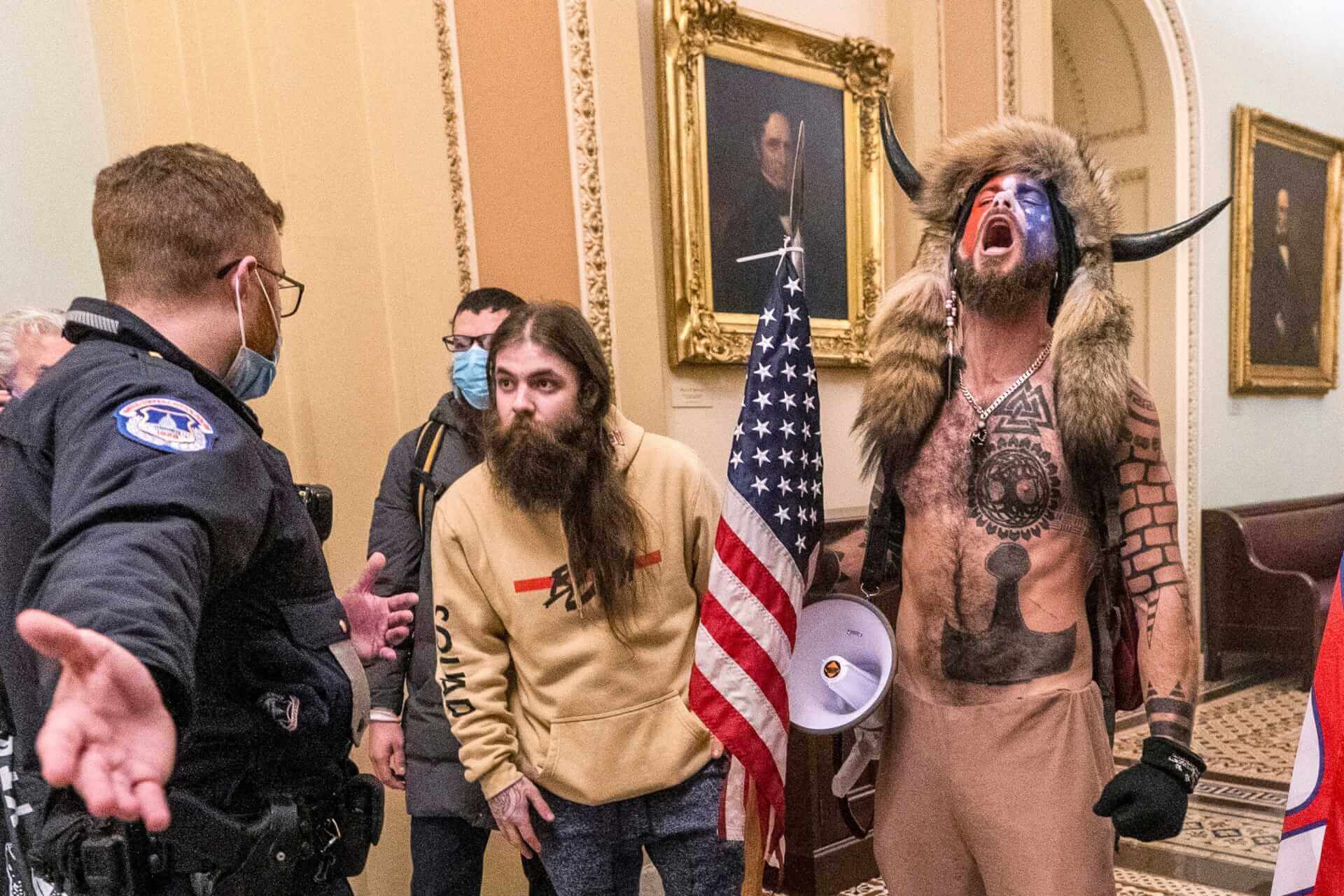South Asia
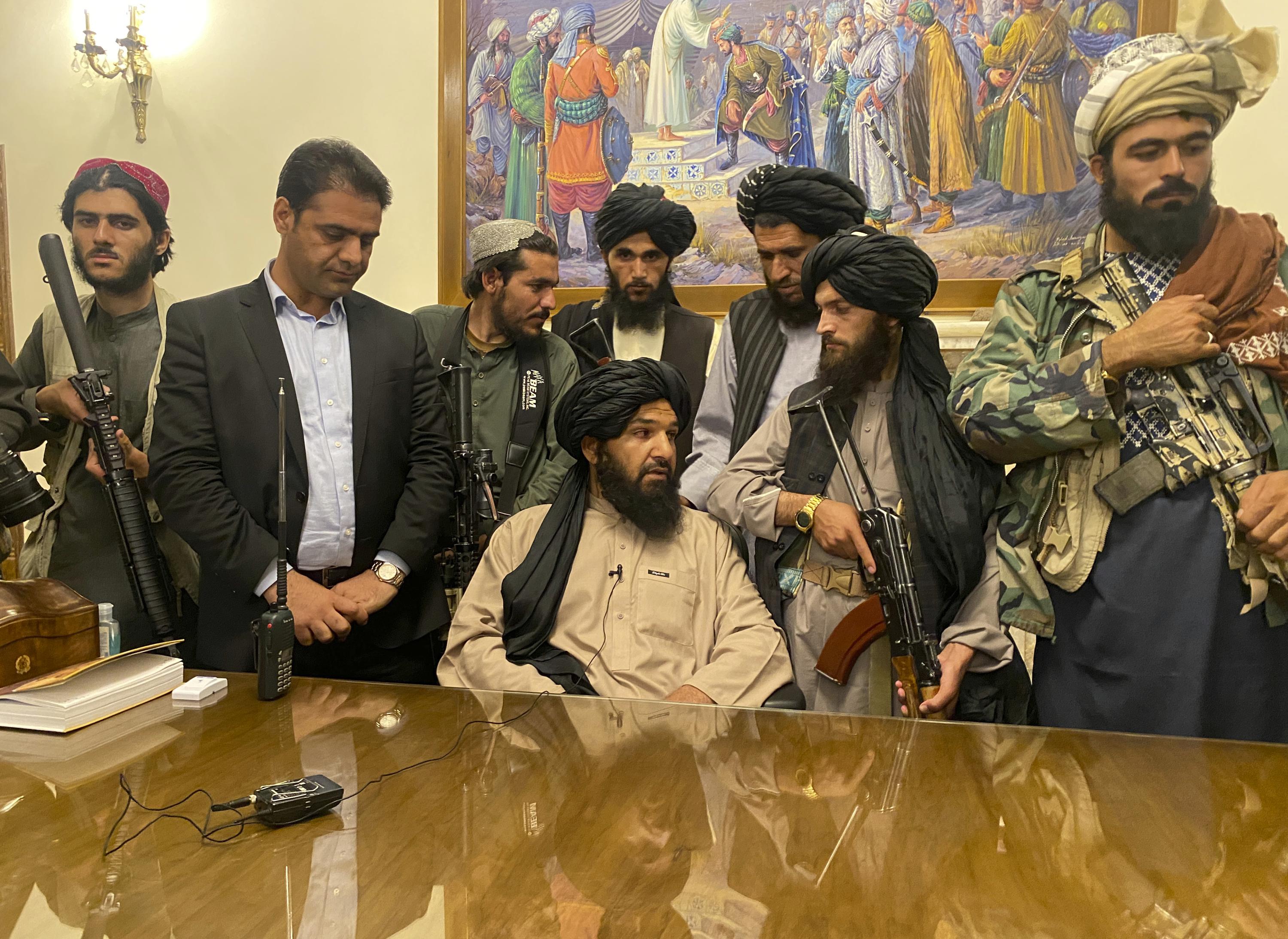
In August, the Taliban seized power in Afghanistan following the hasty withdrawal of troops by the United States (US) and the North Atlantic Treaty Organization. After capturing several provincial capitals during a week-long blitz, the insurgents flooded Kabul and forced President Ashraf Ghani to flee the country, marking the collapse of the Afghan government and the end of the 20-year American campaign to rebuild the country. Aside from the emergency evacuation of thousands of foreigners and diplomats, the Taliban takeover also led to well over 100,000 Afghans being evacuated by several countries, including the US, the United Kingdom, and Iran. Simultaneously, there was a massive influx of refugees into neighbouring countries. [Read More]
In December, the Samyukta Kisan Morcha (SKM), an umbrella organisation of 40 farmers unions, called off a year-long protest by tens of thousands of farmers at the capital city’s borders. Their decision came after the Indian government agreed to set up a committee to deliberate on the SKM’s demand for a guaranteed minimum support price for food grains. The government also: agreed to discuss the Electricity (Amendment) Bill, 2021 before it is tabled in the Parliament; vowed to compensate the families of farmers who died during the year-long protests; promised to urge state governments to withdraw cases filed against the farmers; and pledged to introduce penalty exemptions for crop burning. However, the letter did not mention anything on the SKM’s demand for the dismissal of Union Minister Ajay Misra Teni, whose son was responsible for the Lakhimpur Kheri incident in October, when four protesters and a journalist were run over by a car. [Read More]
Central Asia and the Caucasus
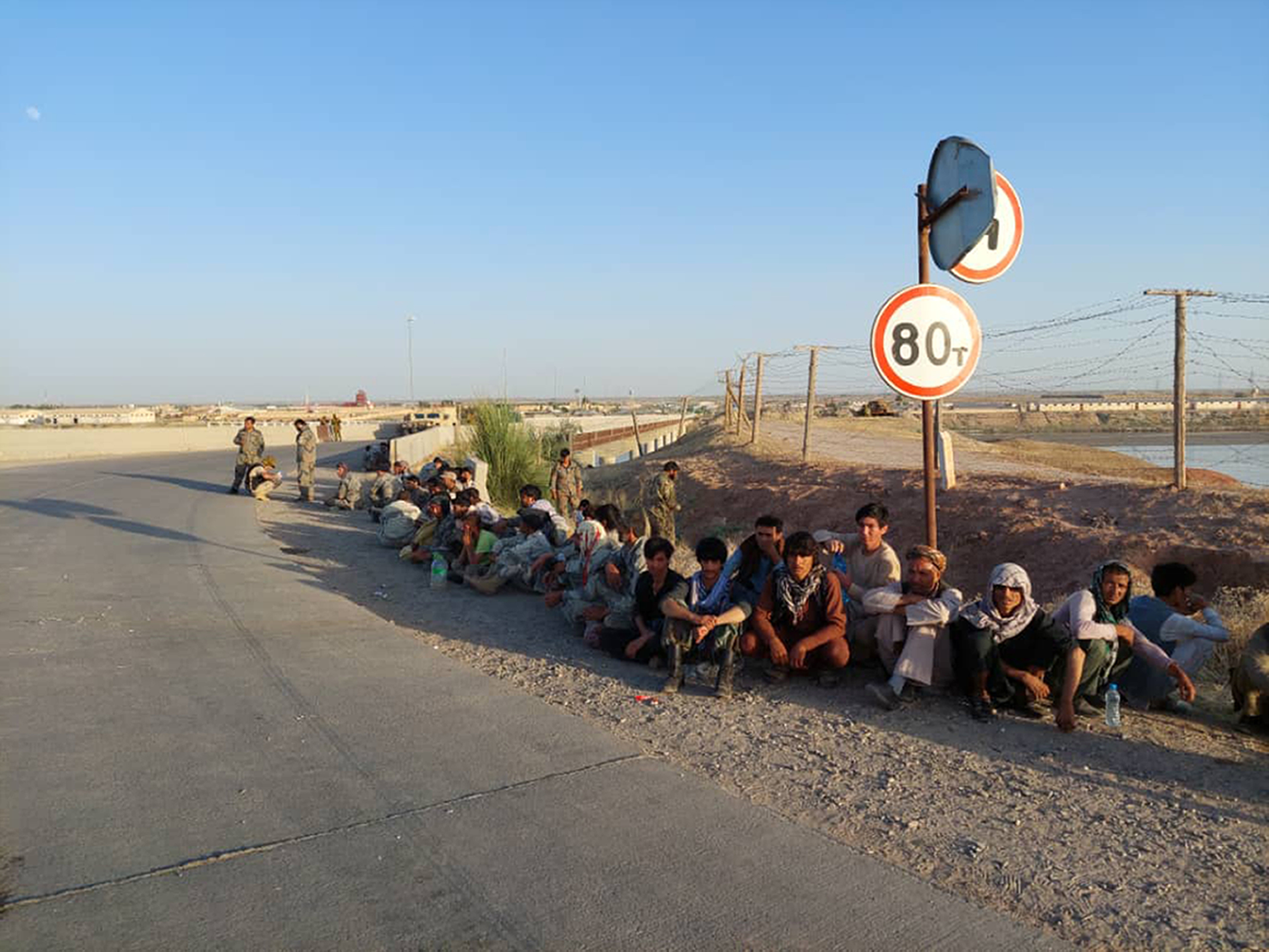
Thousands of Afghan soldiers sought refuge in the neighbouring Central Asian countries of Tajikistan, Turkmenistan, and Uzbekistan as they fled the rapid advances made by the Taliban to take over Afghanistan in June. The fundamentalist group eventually took control of the country on August 25. Central Asian countries have reacted by reinforcing security measures and deploying thousands of troops to their borders as well as holding military drills with Russia. [Read more]
Tensions between Iran and Azerbaijan skyrocketed in October after Tehran conducted massive military exercises along their shared border. Iran began the drills after Azerbaijani forces began stopping Iranian trucks and detaining drivers for “illegally” entering the Karabakh region and “disrespecting” Azerbaijan’s territorial integrity. Iran, however, said that the show of force was a sovereign matter and meant as a warning to Israel, which maintains close ties with Azerbaijan. [Read more]
East and Southeast Asia
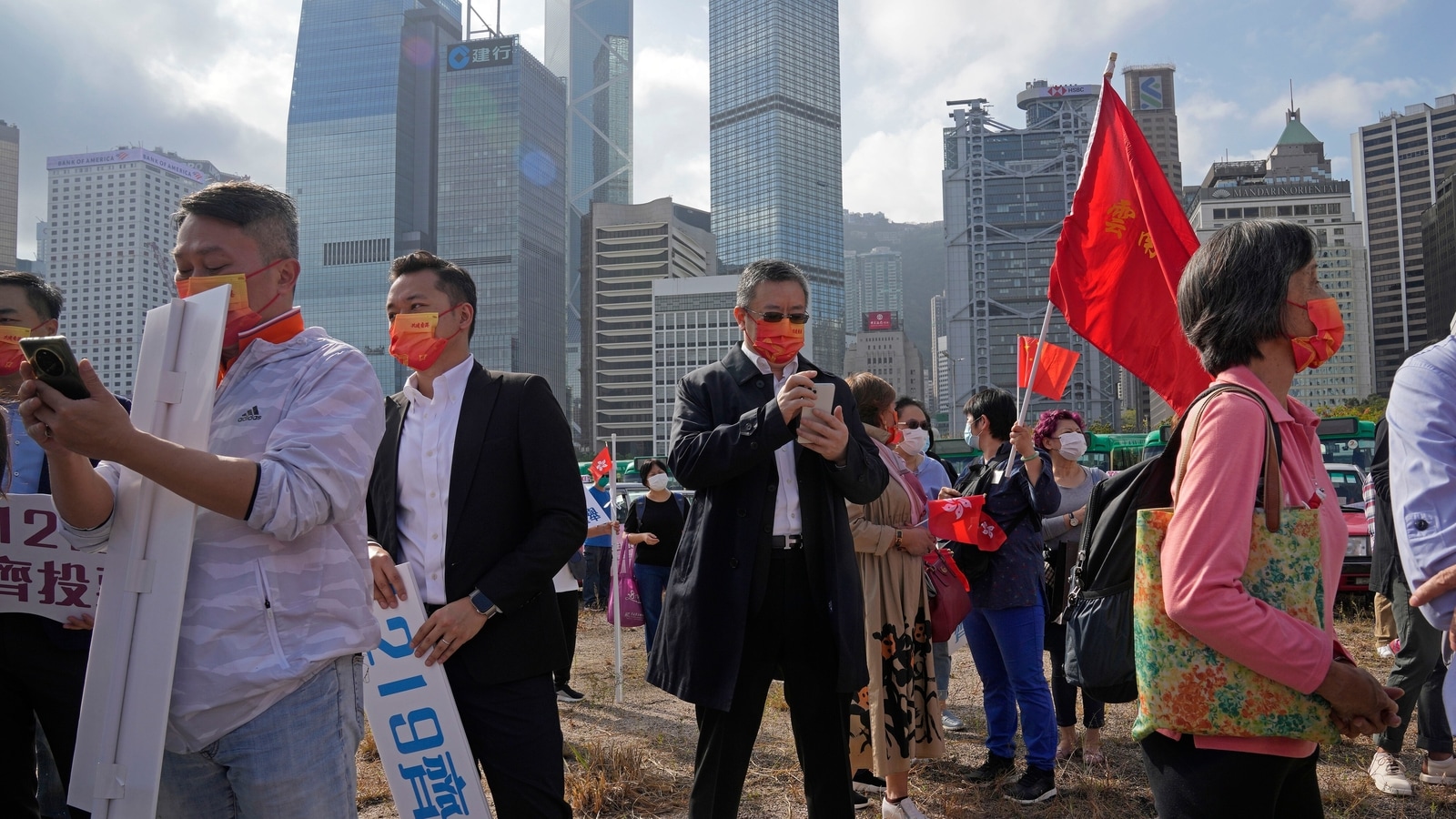
On February 1, Myanmar’s military seized control of the government and placed high-level politicians, including State Counsellor Aung San Suu Kyi and President Win Myint, under house arrest. The coup was attributed to the failure of the government to act on the military’s questionable claims of voter fraud in the election conducted last November, when the National League for Democracy (NLD) won in a landslide victory with 83% of the votes. The military thus saw the NLD as eroding its influence and sought to reinforce its dominance via a coup. Since then, more than 1,100 people have been killed in anti-junta protests. [Read more]
In March, China approved a package of sweeping legislative changes to Hong Kong’s electoral system, further shutting out pro-democracy forces from the semi-autonomous territory’s legislature. The changes included a reduction in the number of democratically elected seats in the legislature and the establishment of a vetting committee to pre-approve potential candidates to ensure their ‘patriotism’ and their loyalty to the mainland. [Read more]
Europe
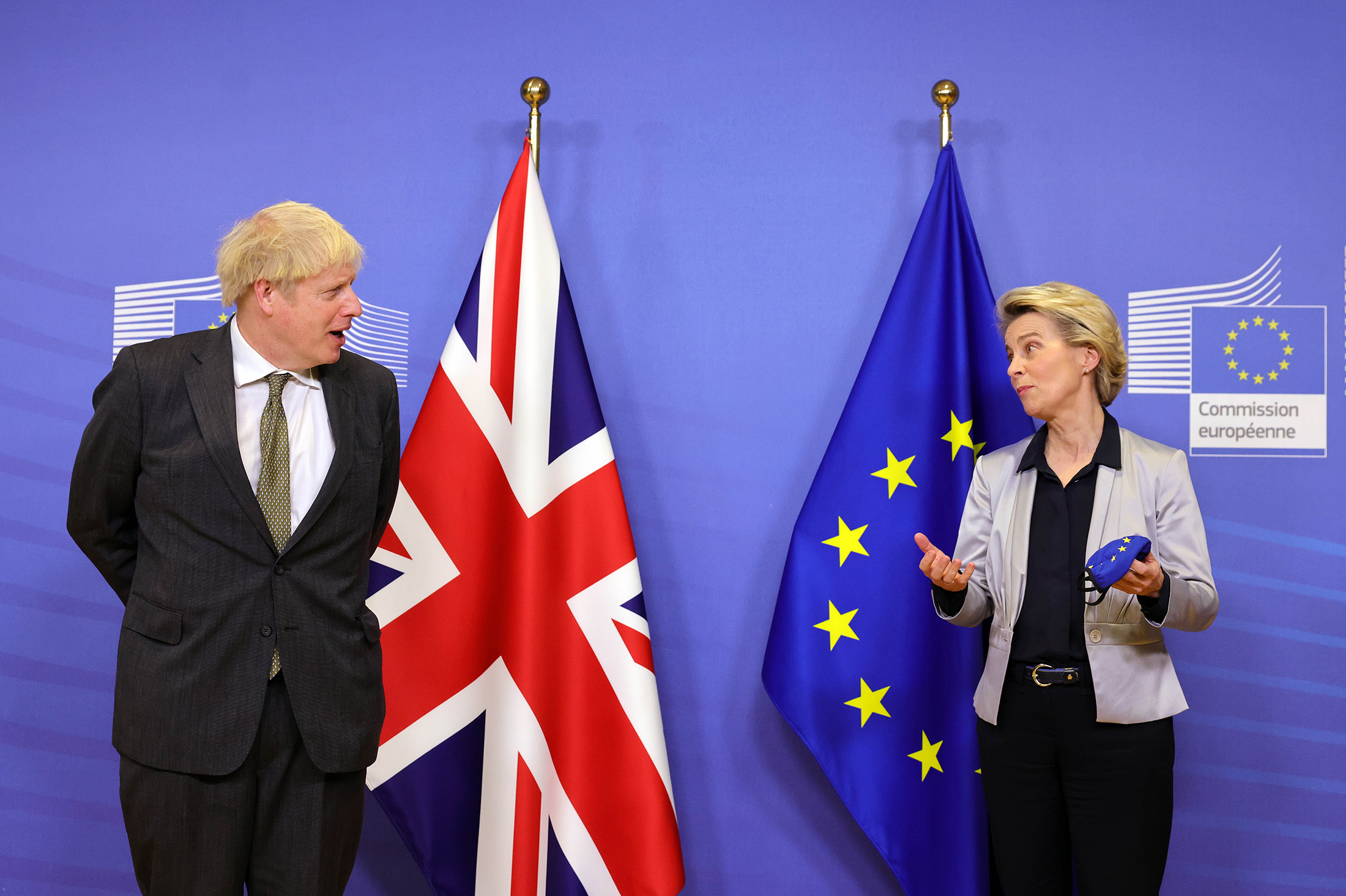
Germany and the United States (US) have threatened to shut down the Nord Stream 2 pipeline if Russia invades Ukraine. Nord Stream 2 is an $11 billion underground gas pipeline built by Russian state-owned gas giant Gazprom that connects Russia to Germany. The pipeline has been a point of contention between the US, Ukraine, Russia, and Germany. The US is concerned about Europe’s increased dependence on Russia for energy, while Ukraine is worried about losing valuable transit fees and about Russia potentially using energy as a geopolitical weapon. The US had earlier imposed sanctions on the pipeline but withdrew them later as a mark of its alliance with Germany and as a gesture of goodwill towards Russia. [Read more]
The United Kingdom (UK) and the European Union continue to spar over key post-Brexit agreements, particularly regarding fishing licenses and the Northern Ireland protocol. Earlier this month, France said it would ask the European Commission to initiate legal action against the UK over its refusal to grant fishing licenses to dozens of French fishermen. Under the Brexit agreement, European vessels can continue to fish in British waters if they obtain a license. However, to secure a license, the boats need to prove that they fished in British waters prior to the Brexit deal, which several smaller French boats have found difficult to fulfil due to a lack of technology to confirm this information. The conflicting parties have made some headway on the Northern Ireland dispute, as the EU has now allowed medicine to continue to move between the UK and Northern Ireland. As per the Brexit agreement, Northern Ireland remains a part of the EU’s single market for goods, including medicine. This avoids creating a hard border that would have otherwise divided the country between the UK and the EU. The protocol found itself at the centre of a controversy when the EU accused the UK of exploiting this arrangement to import vaccines. [Read More]
In October, Russia cut off all direct diplomatic channels with the North Atlantic Treaty Organisation (NATO) after the Western bloc expelled several Russian members on espionage allegations. Moscow said the Organization is not interested in “equal dialogue” or joint efforts to resolve military-political issues. NATO, meanwhile, said it regrets Russia’s decision but plans to remain consistent in its stance against espionage. Since then, Russia has repeatedly warned against NATO’s eastern expansion towards Ukraine, with President Vladimir Putin saying he would consider this the crossing of a “red line.” [Read More]
Latin America and the Caribbean
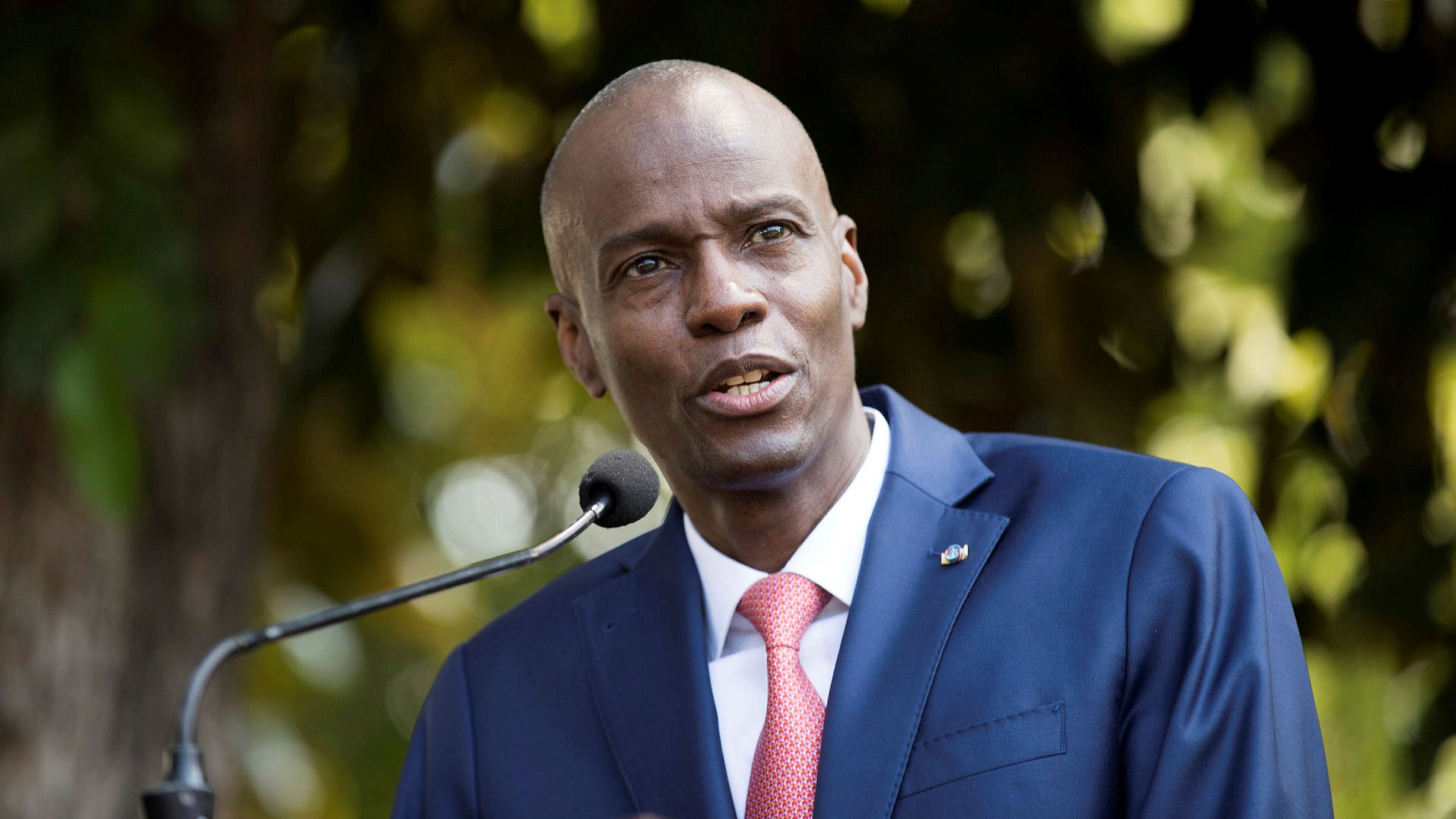
On April 20, the 60th anniversary of the United States’ failed Bay of Pigs invasion, Cuban President Miguel Díaz-Canel was appointed by Congress as the new secretary-general of the country’s Communist Party. His appointment followed de facto leader Raúl Castro’s resignation from the country’s senior-most position last Friday. This officially brings an end to the Castro era, which first began in 1959, when Raúl’s brother, Fidel, led a communist revolution against dictator Fulgencio Batista and led the country as prime minister from 1959 to 1976 and then as president from 1976 to 2008, at which point Raúl took over due to Fidel’s deteriorating health. Díaz-Canel is therefore Cuba’s first non-Castro leader in over 60 years. [Read more]
On July 7, then-Haitian President Jovenel Moïse was assassinated at his residence by a group of foreign and local gunmen. Subsequently, interim Prime Minister (PM) Claude Joseph agreed to step down to allow PM-designate Ariel Henry to take over. New reports suggest that Henry may have been complicit in the assassination, after evidence emerged of at least two phone calls on the day of the attack between him and former civil servant Felix Badio, who is the subject of an arrest warrant for allegedly being one of the masterminds behind the assassination. Aside from this political upheaval, the country is simultaneously reeling from the impact of a 7.2 magnitude earthquake that struck the country on August 14 and killed over 2,000 people. Furthermore, Haiti is also dealing with high inflation, food and fuel shortages, cuts to basic services, and rising crime and gang violence. [Read more]
Middle East and North Africa (MENA)
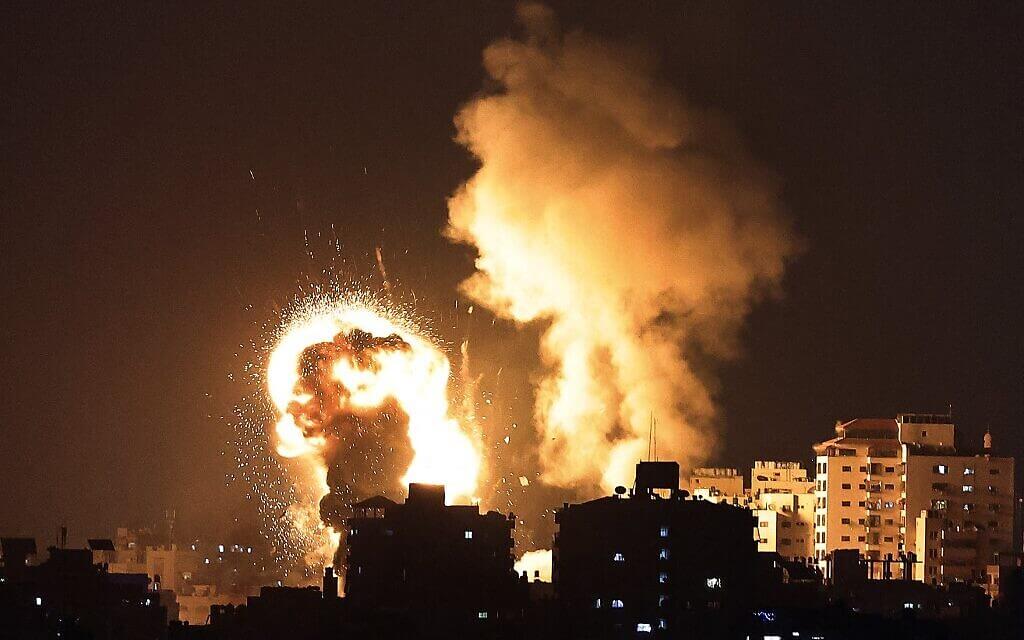
In May, Israel and Hamas fought a brutal conflict that resulted in the deaths of over 230 people in Gaza, including more than 60 children, as a result of Israeli airstrikes. Fighting erupted after Hamas fired a barrage of rockets at Israeli cities, including Jerusalem and Tel Aviv, over the potential eviction of several Palestinian families from the Sheikh Jarrah neighbourhood in East Jerusalem. Hamas fired over 4,000 projectiles at Israel, leading to the deaths of 12 people, including three foreigners. An Egyptian-brokered ceasefire put a halt to the fighting after 11 days. [Read more]
On October 25, the Sudanese military, led by Gen. Abdel Fattah al-Burhan, ousted the civilian-led government in Khartoum, weeks before the deadline for the total handover to the civilian government. Gen. Burhan dissolved the government and declared a state of emergency after arresting Prime Minister Abdalla Hamdok. Burhan said the coup was meant to ensure Sudan’s stability, which was jeopardised due to infighting between the military and civilian parties. Hamdok was reinstated as PM a month later, after he signed a deal with Gen. Burhan to extend the military’s rule. Following the removal of former dictator Omar al-Bashir in 2019, Sudan has been governed by a civilian-military council with the aim of transitioning the country towards democracy. [Read more]
North America
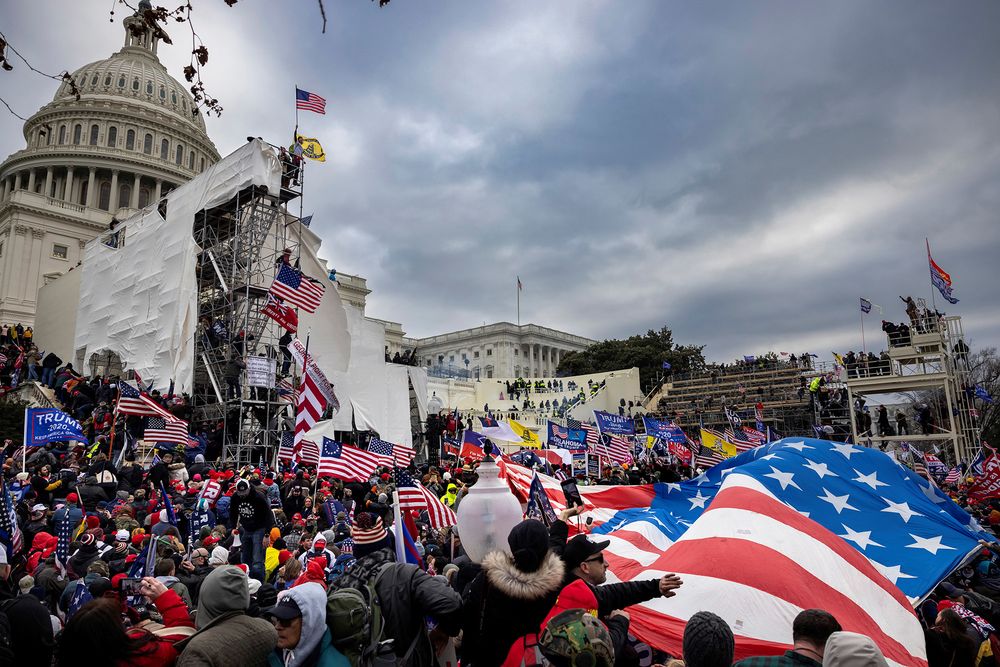
On January 6, the United States (US) Congress was in session to certify the results of the 2020 presidential election that saw Democrat candidate Joe Biden defeat then-incumbent President Donald Trump, despite the Republican’s several failed attempts to challenge the vote count. However, the session was interrupted by thousands of Trump supporters who clashed with the Capitol police and broke into the Capitol building in an effort to overturn the election. 727 people have thus far been charged in the Capitol insurrection. One week before his term ended, Trump was impeached for incitement of insurrection in the House of Representatives. However, he was found not guilty in the Senate, meaning that he can run again in the 2024 election. [Read More]
In September, Chinese authorities released two Canadians—former diplomat Michael Kovrig and entrepreneur Michael Spavor—hours after authorities in Vancouver announced the release of Meng Wanzhou, the Chief Financial Officer (CFO) of Chinese telecom giant Huawei. The release of the three individuals brought an end to three years of “hostage diplomacy” between Beijing and Ottawa. Meng was arrested in Vancouver over a bank fraud warrant issued by then-President of the United States (US) Donald Trump. Subsequently, Chinese authorities arrested the two Michaels in a retaliatory move. [Read More]
Oceania
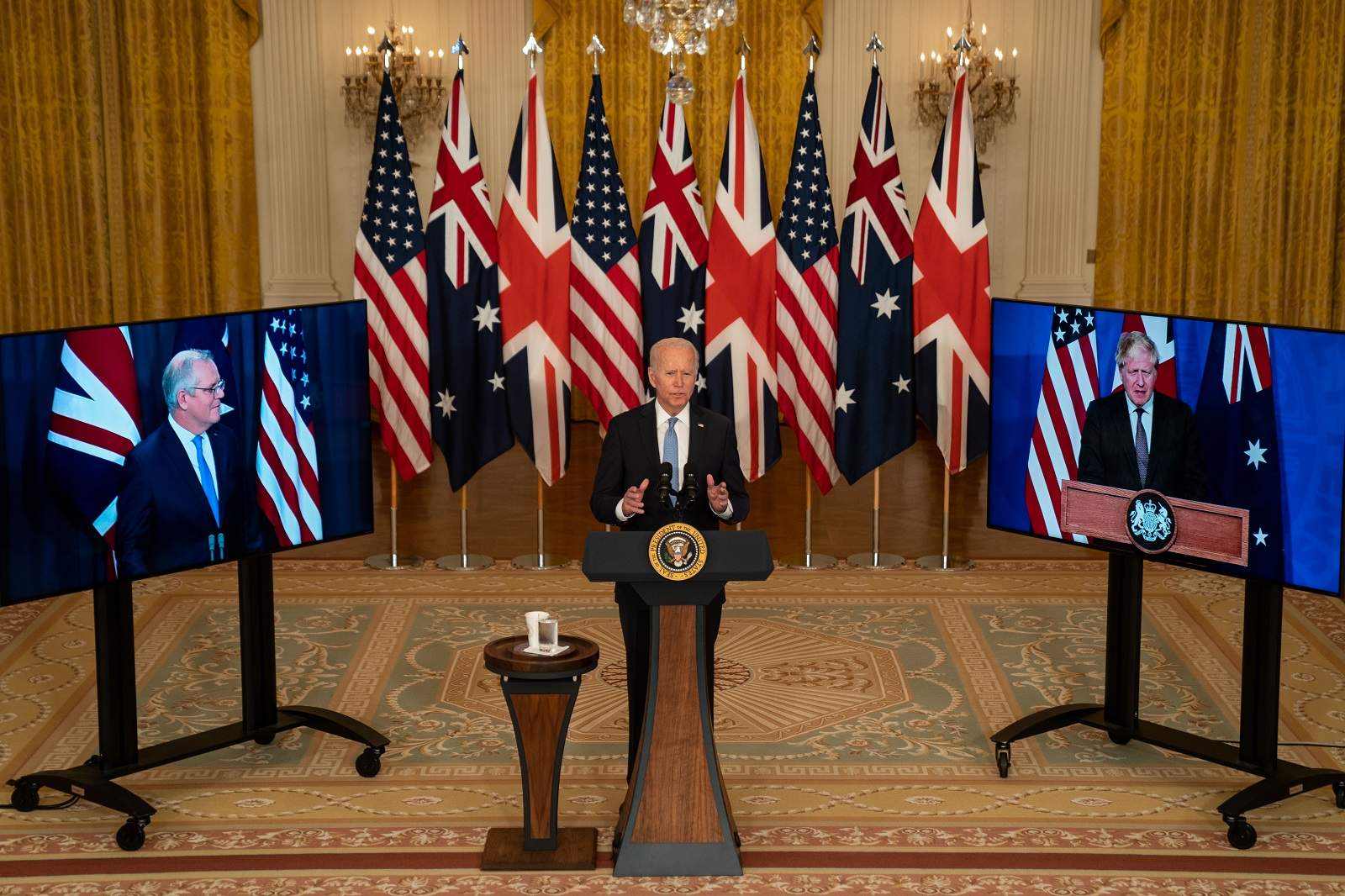
In May, China announced an indefinite suspension of the China-Australia Strategic Economic Dialogue, effectively closing avenues for diplomacy with Canberra amid a widening rift over a range of issues. Bilateral ties first began to fray last year after Canberra called for an independent investigation into the origins of COVID-19, abandoned China’s ambitious Belt and Road Initiative (BRI), and banned Chinese tech companies from the country’s 5G network. In response, China placed tariffs, anti-dumping duties, temporary bans, and a number of other trade restrictions on various Australian exports, including copper, wine, beef, barley, timber, lobster, coal, dairy, sugar, wool, fruit, and oatmeal. [Read more]
In September, Australia, the United Kingdom (UK), and the United States (US) announced a new trilateral security partnership to counter China’s growing influence in the Indo-Pacific region. The new alliance, AUKUS, allows Australia to build at least eight nuclear-powered submarines, the technology for which will be shared by the UK and the US. However, Australia abandoned a $90 billion future submarine deal with France for this agreement, infuriating the latter. [Read more]
Sub-Saharan Africa
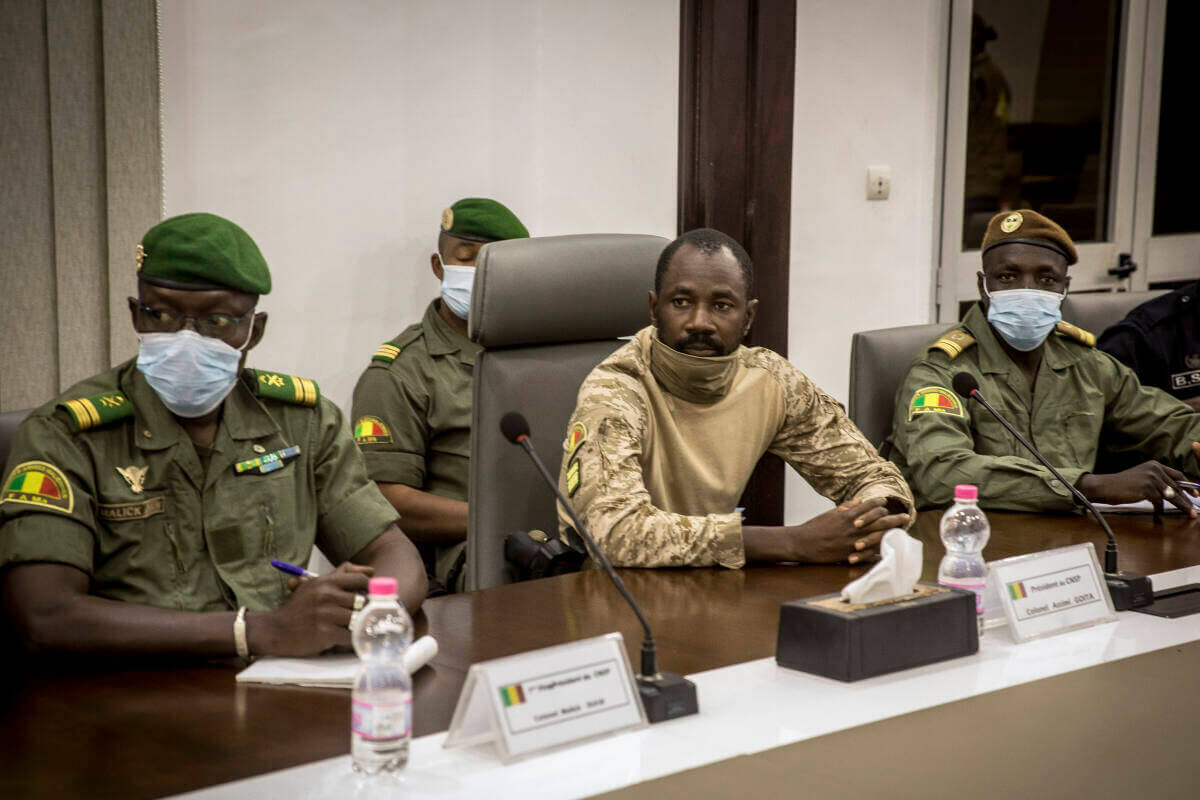
2021 marked a year of military coups in sub-Saharan Africa.
In May, Malian Colonel Assimi Goïta, who led the coup last August that deposed President Ibrahim Boubacar Keïta and Prime Minister Boubou Cissé, dismissed and detained their replacements, President Bah N’Daw and Prime Minister Moctar Ouane. The two coups have led to Mali’s suspension from the Economic Community of West African States (ECOWAS) and the African Union (AU). The junta has refused to abide by its original pledge of holding elections in February 2022 following an 18-month transition period and has now extended its mandate by five years.
In April, now-former Chadian President Idris Déby was killed on the frontlines of a battle against rebel insurgents. His son, General Mahamat Kaka, has now taken control of the transition government, which will be in power for 18 months. As per the terms of Chad’s constitution, the speaker of the parliament should have taken over the leadership for 40 days before another election was held. However, the military has instead dissolved the legislative assembly and completely overridden the constitution.
In September, Guinean President Alpha Condé was ousted via a military coup led by Lieutenant Colonel Mamady Doumbouya. Guinea has since been suspended by ECOWAS and the AU. Doumbouya has promised a return to civilian rule but has yet to provide a timeline for elections.
In October, the International Court of Justice ruled largely in favour of Somalia in its maritime dispute with Kenya over a 100,000 square-kilometre zone in the Indian Ocean that is believed to contain oil and gas resources. Kenya has refused to accept the jurisdiction of the Court and though the ruling is legally binding, the ICJ has no means of enforcing it. Kenya and Somalia are also embroiled in a number of other disputes, including allegations of Kenyan interference in Jubaland and Somaliland and Kenya’s closure of refugee camps that house a number of Somalis. [Read more]

